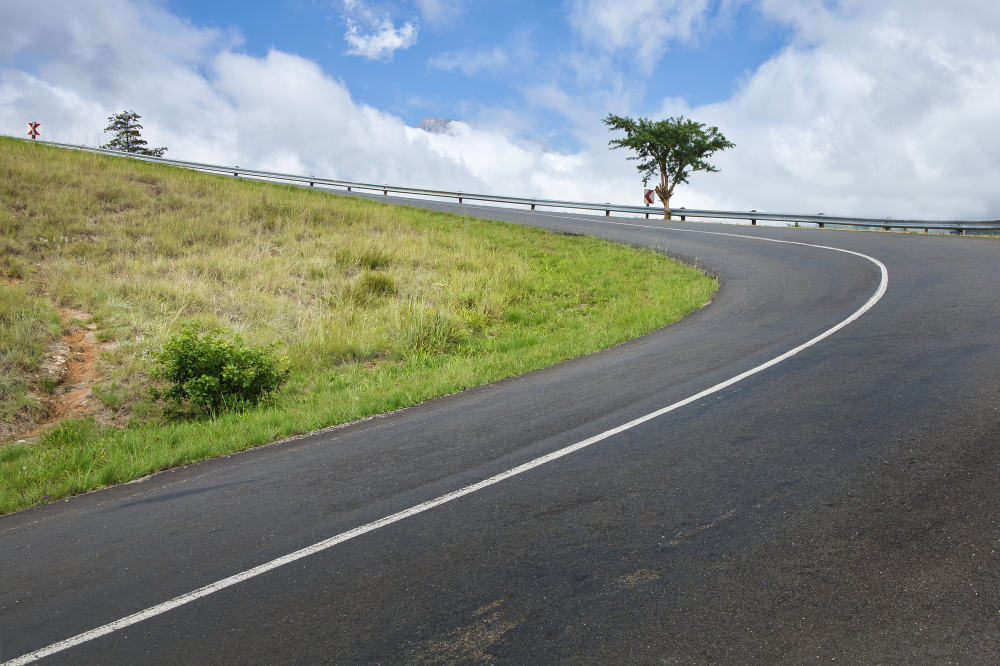How Long Does It Take to Build a Driveway? Insights for Homeowners
Building a driveway is a significant investment that enhances both the curb appeal and functionality of a home. Whether you’re constructing a brand-new driveway or replacing an existing one, knowing how long the process will take can help you plan accordingly. If you’re wondering how long does it take to build a driveway, this comprehensive guide will provide you with insights on the factors affecting the timeline, the steps involved, and what homeowners can expect during the construction process.
At Commonwealth Paving, we understand the importance of having a high-quality, long-lasting driveway. Our professional services ensure timely and efficient installation, taking into consideration the unique needs of your property. To discuss your driveway project, give us a call at +1 502 459 7283 or visit us at 136 Outerloop, Louisville, Kentucky 40214.
Factors That Influence How Long It Takes to Build a Driveway
The amount of time required to build a driveway can vary depending on several factors. Below are some of the key elements that influence the timeline:
- Driveway Type (Material Selection)
- Different driveway materials have different installation times. The most common types are:
- Asphalt Driveway: Typically, asphalt driveways can be installed within 1-2 days, but the curing time can extend the overall project to 3-5 days.
- Concrete Driveway: Installing a concrete driveway takes around 2-3 days, with an additional 7-10 days for the concrete to cure properly.
- Gravel Driveway: Gravel driveways are relatively quick to install, usually within 1 day, although preparing the site might take additional time.
- Paver Driveway: Paver driveways require precise work, and the installation time can be anywhere from 3-5 days depending on the size and design of the project.
- Different driveway materials have different installation times. The most common types are:
- Size of the Driveway
- A larger driveway requires more time to excavate, level, and pave. Driveways for multi-car homes or long, winding pathways take longer to install than smaller, single-car driveways.
- Site Preparation
- Site preparation is a crucial step that can significantly impact how long it takes to build a driveway. Factors like removing the old driveway, grading the land, addressing drainage issues, and removing trees or large rocks can extend the installation timeline.
- Weather Conditions
- Weather plays a pivotal role in driveway construction. Rainy or extremely cold weather can delay the installation process, especially for materials like concrete or asphalt that require certain temperatures to set properly. At Commonwealth Paving, we monitor weather conditions closely to ensure optimal installation times for your project.
- Permitting and Regulations
- Some local governments may require permits before you can begin building a driveway. Securing permits can take several days to weeks, depending on your municipality. Ensuring that you have all the necessary paperwork ahead of time can help avoid delays.
- Complexity of the Design
- More intricate driveway designs, such as those that incorporate curves, borders, or custom patterns, can take longer to install. Each additional feature or customization increases the complexity and time required to complete the project.

Step-by-Step Guide: Building a Driveway
To better understand how long it takes to build a driveway, it helps to break down the entire process into distinct phases. Below is a step-by-step guide to the typical construction process:
1. Planning and Design (1-2 weeks)
- Before any physical work begins, you’ll need to design your driveway and choose the appropriate material. During this stage, you’ll also need to secure any necessary permits.
- At Commonwealth Paving, our team will work with you to create a design that complements your home and meets all local regulations. We handle the permit process, ensuring everything is in place before construction begins.
2. Excavation and Site Preparation (1-3 days)
- Once the design is finalized, the next step is site preparation. This involves excavating the area where the driveway will be built, leveling the land, and preparing the base.
- The duration of this step depends on the current condition of the site. If the area needs significant grading or removal of large obstructions, this step may take longer.
3. Base Installation (1-2 days)
- A strong and stable base is essential for a durable driveway. Depending on the material you choose, the base may consist of crushed stone, gravel, or a combination of materials. The base must be compacted and leveled to ensure proper drainage and prevent future cracks or dips in the driveway surface.
- At Commonwealth Paving, we ensure that the base is installed to industry standards, which helps extend the lifespan of your driveway.
4. Paving the Driveway
- The actual paving process varies depending on the type of material selected:
- Asphalt Driveway (1-2 days): Asphalt is laid in layers and compacted for a smooth finish. The process is relatively quick, but the asphalt needs time to cure before it can handle vehicle traffic.
- Concrete Driveway (2-3 days): Concrete is poured, spread evenly, and finished with smooth or textured designs. Like asphalt, concrete needs curing time, typically 7-10 days.
- Gravel Driveway (1 day): Gravel is spread evenly across the prepared base and compacted. This is one of the fastest driveway types to install.
- Paver Driveway (3-5 days): Pavers are individually laid over the base in the desired pattern. The edges are secured, and sand is used to fill the gaps between the pavers.
5. Curing Time (3-10 days)
- For driveways made of asphalt or concrete, curing time is critical. During this period, the material hardens and gains strength. It’s essential to avoid driving on the surface until the curing process is complete to prevent damage.
- For asphalt driveways, expect to wait 3-5 days before use, while concrete requires 7-10 days to cure fully.
6. Final Inspection and Sealing (1-2 days)
- Once the driveway is installed and cured, a final inspection is conducted to ensure everything is up to standard. For asphalt driveways, applying a sealant can help protect the surface from cracks and UV damage. This step adds an additional day or two but is crucial for extending the life of your driveway.

Total Time for Building a Driveway
Taking all these steps into account, how long does it take to build a driveway? On average, the entire process can take anywhere from 1 to 2 weeks, depending on the factors mentioned earlier. Here’s a rough estimate based on material types:
- Asphalt Driveway: 4-7 days, including site prep and curing time.
- Concrete Driveway: 7-14 days, including curing.
- Gravel Driveway: 1-2 days.
- Paver Driveway: 5-7 days, depending on complexity.
How to Speed Up the Driveway Construction Process
While it’s important not to rush the process to ensure a high-quality result, there are some steps homeowners can take to speed up driveway construction:
- Plan Ahead: Start planning your driveway project well in advance. Get permits early and choose your materials ahead of time to avoid last-minute decisions.
- Choose Experienced Contractors: Hiring an experienced contractor like Commonwealth Paving can significantly reduce the time it takes to build your driveway. Our team has the tools and expertise to complete the job efficiently.
- Monitor Weather Forecasts: Scheduling your driveway construction during a period of stable weather can help avoid delays due to rain or extreme temperatures.
- Prepare the Site: Clear the site of any obstacles or debris before the contractor arrives. This can save time during the excavation and site preparation stages.
FAQs About Building a Driveway
Q1: How long does it take to build a driveway during bad weather?
- A: Weather conditions, especially rain, freezing temperatures, or extreme heat, can delay the driveway installation process. Asphalt and concrete require specific temperature ranges to set properly. Always check the forecast and work with your contractor to schedule the project during favorable weather.
Q2: Can I drive on my new driveway immediately after it’s built?
- A: No, you’ll need to wait for the material to cure. For asphalt, wait 3-5 days, and for concrete, wait 7-10 days before driving on it.
Q3: How long does it take to build a driveway with a complex design?
- A: Driveways with intricate designs, such as custom patterns or pavers, can take longer to install. Plan for an additional 1-2 days for more detailed designs.
Q4: What’s the fastest type of driveway to install?
- A: Gravel driveways are the fastest to install, often taking just 1-2 days. However, they may require more frequent maintenance compared to asphalt or concrete.
Q5: Can I install a driveway in the winter?
- A: While it’s possible to install certain types of driveways in the winter, it’s generally recommended to wait until warmer weather. Concrete and asphalt need specific temperature conditions to set properly.
The time it takes to build a driveway depends on several factors, including the material, size, and design complexity. By understanding the steps involved, you can better plan and anticipate how long your project will take. At **Commonwealth Paving
From Start to Finish How Long Does It Take to Build a Driveway?
Building a new driveway is an exciting upgrade for any homeowner, adding functionality, curb appeal, and value to your property. However, one of the most frequent questions we hear at Commonwealth Paving is: how long does it take to build a driveway? The answer varies depending on several factors such as the type of material used, site preparation, weather conditions, and the complexity of the project.
In this comprehensive guide, we’ll explore the full timeline of building a driveway from start to finish. By understanding the process and potential delays, homeowners can better plan their project and manage expectations. If you’re considering building or renovating a driveway, our team at Commonwealth Paving is here to help! Call us at +1 502 459 7283 or visit us at 136 Outerloop, Louisville, Kentucky 40214.
Key Factors That Affect Driveway Construction Time
Before diving into the specifics, it’s important to understand the main factors that impact how long it takes to build a driveway:
- Type of Driveway Material: Different materials have unique installation processes and curing times.
- Size and Scope: A larger or more complex driveway naturally takes longer to build.
- Site Preparation: Clearing the area, leveling the ground, and installing a proper foundation can vary in time depending on the existing condition of your site.
- Weather: Poor weather conditions, like rain or extreme heat, can delay the project.
- Permits and Local Regulations: Some municipalities require permits before construction can begin, which can extend the timeline.
Now, let’s break down each phase of building a driveway, along with the estimated time frame.
Step 1: Planning and Design (1-2 Weeks)
The first stage of building a driveway involves planning and design. Homeowners must decide on the type of driveway they want—whether it’s concrete, asphalt, pavers, or gravel. This decision significantly influences how long it takes to build a driveway.
- Material Selection: Choose the material that best suits your needs and climate. For example, concrete is highly durable, while gravel is more affordable but may require frequent maintenance.
- Driveway Size and Layout: The larger and more complex the design, the longer it will take. A standard two-car driveway is quicker to install than a long, winding driveway with decorative elements.
- Obtaining Permits: Depending on your location, you may need a permit for driveway construction. This process could take anywhere from a few days to a couple of weeks.
At Commonwealth Paving, we help streamline the design process and ensure that you meet all local regulations, saving you valuable time. Proper planning is crucial to avoid delays later on.

Step 2: Excavation and Site Preparation (1-3 Days)
Once the design and permits are finalized, the next step is site preparation. This involves removing any existing driveway (if applicable), excavating the ground, and leveling the surface to create a stable base for the new driveway.
- Old Driveway Removal: If you are replacing an old driveway, removing it can add an extra day or two to the timeline.
- Site Clearing: Any obstructions like tree roots, rocks, or utility lines may also need to be addressed.
- Leveling and Grading: The site must be leveled and graded to ensure proper drainage. This is a critical step that prevents water from pooling on the driveway surface.
Site preparation is one of the more variable stages of the project, as it depends heavily on the condition of the existing site. Simple, flat sites require less time, while complex sites or those with significant debris will take longer.
Step 3: Building the Base (1-2 Days)
A strong base is essential for the longevity of your driveway. Depending on the material chosen, the base may consist of crushed stone, gravel, or other materials. The base must be compacted to provide a stable foundation for the driveway.
- Gravel or Crushed Stone Base: For most driveways, a layer of compacted gravel is used. This typically takes about 1 day to install.
- Drainage Considerations: Proper drainage is crucial to prevent water damage. In some cases, additional work may be required to install drainage solutions, which can extend the timeline.
A well-prepared base is essential for preventing cracks and other issues down the road. At Commonwealth Paving, we prioritize proper base installation to ensure the long-term success of your driveway.
Step 4: Paving the Driveway (Varies by Material)
This is the most significant phase of the project, where the actual driveway is built. The time it takes to pave a driveway largely depends on the material chosen. Here’s a breakdown:
- Asphalt Driveway (1-2 Days): Asphalt driveways can typically be installed in 1-2 days, depending on the size of the driveway. However, the asphalt will need additional time to cure, which we’ll discuss in the next section.
- Concrete Driveway (2-3 Days): Concrete driveways take longer to install because the material must be mixed and poured. The concrete also needs to be smoothed and leveled to ensure a clean finish.
- Paver Driveway (3-5 Days): Paver driveways take more time to install because each paver must be individually placed. The complexity of the design will affect the timeline.
- Gravel Driveway (1 Day): Gravel driveways are the quickest to install, often taking just 1 day to complete. However, they require ongoing maintenance, such as re-leveling and adding more gravel over time.
The installation phase is crucial to ensuring that your driveway looks great and functions properly. Each material has its own set of steps and drying/curing times, which brings us to the next phase.
Step 5: Curing and Drying Time (3-10 Days)
Once the driveway is installed, it needs time to cure or dry before it can be used. The time required for curing depends on the material used:
- Asphalt Driveway (3-5 Days): Asphalt needs a few days to cure before you can drive on it. During this time, it’s important to avoid heavy traffic on the surface to prevent indentations or other damage.
- Concrete Driveway (7-10 Days): Concrete takes longer to cure than asphalt. Homeowners should plan to avoid using the driveway for at least a week after installation. Concrete also requires proper weather conditions for curing—too much rain or extreme heat can negatively affect the finish.
- Paver Driveway (No Curing Required): Pavers don’t require curing, which is one reason why they are popular among homeowners. Once the pavers are installed, the driveway is ready for immediate use.
- Gravel Driveway (No Curing Required): Like pavers, gravel driveways are ready for use as soon as the installation is complete. However, they may require periodic maintenance to maintain their appearance and function.
Curing time is a critical part of the driveway construction process. Rushing this step can lead to issues such as cracks, settling, or premature wear.
Step 6: Final Touches and Sealing (1-2 Days)
The final stage of driveway construction involves any finishing touches, such as sealing the surface, adding borders, or applying a protective coating. This step not only improves the appearance of the driveway but also helps protect it from damage.
- Asphalt Sealing: Sealing is a common step for asphalt driveways to protect against moisture and UV damage. This is usually done a few months after the initial installation to allow the asphalt to fully cure.
- Concrete Sealing: Concrete driveways can also be sealed to prevent staining and cracking. Like asphalt, it’s best to wait a few months before applying the sealant.
- Edging and Borders: Some homeowners choose to add decorative edging or borders to their driveway for a more finished look. This step adds aesthetic value but also requires extra time for installation.
Once the final touches are complete, your driveway is ready for use! Depending on the material and complexity of the project, the entire process can take anywhere from 1 to 2 weeks.
Total Time to Build a Driveway
So, how long does it take to build a driveway from start to finish? Here’s a general breakdown:
- Asphalt Driveway: 4-7 days, including site prep and curing.
- Concrete Driveway: 7-14 days, including curing.
- Gravel Driveway: 1-2 days, no curing required.
- Paver Driveway: 5-7 days, no curing required.
Keep in mind that these estimates can vary depending on factors like weather, site preparation, and the complexity of the design. At Commonwealth Paving, we work efficiently to complete your project within a reasonable timeframe, while also ensuring high-quality workmanship.
How to Ensure Your Driveway Project Stays on Schedule
While some delays are inevitable, there are several steps homeowners can take to help ensure their driveway project stays on schedule:
- Plan Ahead: Start the planning and design process early to avoid any last-minute delays. Make decisions about materials and layout ahead of time.
- Work with Experienced Contractors: Choosing an experienced contractor like Commonwealth Paving ensures that your project is completed on time and to a high standard. Our team is skilled in handling all types of driveways, and we can quickly address any issues that arise during the construction process.
- Monitor Weather Conditions: While we can’t control the weather, scheduling your project during a period of stable weather can help avoid delays. Our team closely monitors weather forecasts to ensure optimal timing for your installation.
Address
Commonwealth Paving, 136 Outerloop, Louisville, Kentucky 40214
Phone: 502-459-7283, Fax: 502-456-2678
Opening Hours
| Monday | 9:00 AM – 5:00 PM |
| Tuesday | 9:00 AM – 5:00 PM |
| Wednesday | 9:00 AM – 5:00 PM |
| Thursday | 9:00 AM – 5:00 PM |
| Friday | 9:00 AM – 5:00 PM |
| Saturday | Closed |
| Sunday | Closed |






